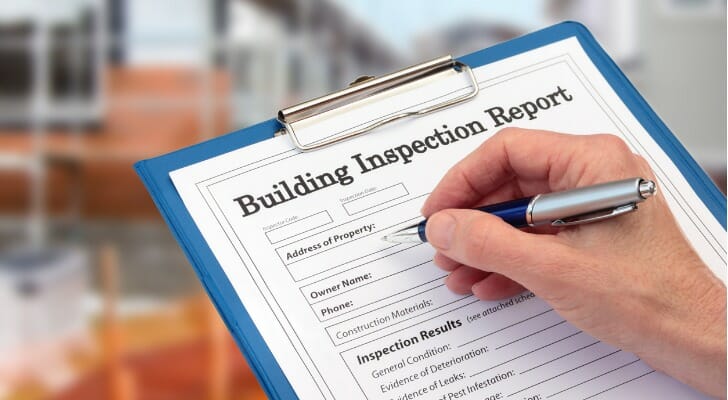If you are buying a home, there are two things you should never, under any conditions, waive. The first is home inspection, along with your right to unilaterally withdraw your offer based on the results of that inspection. The second is the appraisal contingency. This clause in your home buying contract allows you to walk away from the deal if the bank doesn’t appraise the property for the amount you’ve offered. Here’s what you should know about an appraisal contingency. Consider working with a financial advisor as you explore buying a residence or real estate investment property.
What Is a Contingency?
Contingencies are clauses that you build into a contract. They establish the conditions under which both parties will move forward, and what will happen if the terms of this agreement change.
In the context of buying a house, you will generally include contingencies in two documents.
The first is the offer that you make to the person selling the house. Under most circumstances this offer is a form of contract known as a “firm offer.” This means that you cannot withdraw your offer once you’ve made it, although you can specify an expiration date. If the seller accepts your offer, you are bound to honor its terms.
The second is what is known as the purchase and sale agreement, or P&S agreement. This is the formal contract for sale of the house and contains far more specific details than the firm offer. It essentially codifies and expands on the firm offer contract. (It is separate from the offer contract chiefly because the P&S agreement is a detailed contract that must be drawn up for each individual property transaction. This process takes time. So, buyers will make an offer; sellers will accept their offer; then the lawyers will get to work drafting the contract for sale.)
Buyers will typically include contingencies in both the offer contract and the P&S agreement. These are clauses that establish specific conditions under which the buyer can walk away from the sale, or conditions that must be met for the deal to continue. For example, it is common for buyers to include a title contingency. This language allows the buyer to walk away from the deal if their lawyers find anything wrong with the title to the house.
Both buyers and sellers can include contingencies. That said, contingencies are more common for buyers since they have up-front money at stake and the sellers know more about the property.
Why Do Contingencies Matter?
 Money. A lot of it. First, during the process of buying a house you make a series of deposits toward the down payment of the house. For example, it’s common to put down $1,000 of “earnest money” at the time you make the offer. Or you might have paid half of the down payment while signing your P&S agreement. A standard contingency, whether in an offer or a P&S agreement, allows you to declare the entire transaction null and void if something triggers that clause. This entitles you to all of your deposit money back with no penalties.
Money. A lot of it. First, during the process of buying a house you make a series of deposits toward the down payment of the house. For example, it’s common to put down $1,000 of “earnest money” at the time you make the offer. Or you might have paid half of the down payment while signing your P&S agreement. A standard contingency, whether in an offer or a P&S agreement, allows you to declare the entire transaction null and void if something triggers that clause. This entitles you to all of your deposit money back with no penalties.
Second, without a contingency you can be required to go forward with the purchase. A contingency doesn’t just get you your deposit money back. It also ends the transaction. When there’s something wrong with a property this is extremely important. Without a contingency, if you find something wrong with the property then your only recourse is to try and negotiate with the seller. Since they already have your contract in hand (whether offer or P&S), they don’t have any reason to bargain. You can face the loss of your entire deposit or, depending on the terms of the contract, even be liable for the entire value of your offer.
For example, at time of writing the real estate market was extremely hot. To give themselves an edge many buyers have been waiving their right to a property inspection. (This is as opposed to retaining the contingency known as “for informational purposes,” in which case you can’t ask the seller to make any changes based on the home inspector’s report, but you can still cancel the purchase.)
Say you do this. Then, during a walkthrough, you discover the roof leaks and will require replacement. This is a $10,000 expense. Had you retained the inspection contingency you could have walked away from the deal then and there. However, having waived this contingency, you have no right to change the contract based on the condition of the house.
Do not waive your right to an inspection.
What Is an Appraisal Contingency?
 When you buy a home, your lender will typically have someone conduct an appraisal of the property. This means that they review local property records and nearby sale prices, visit the property in person to view its condition, and generally research your purchase to determine what they think the fair market price is for this house. Virtually all lenders require this as part of the financing process to make sure that they aren’t lending more than the property is worth.
When you buy a home, your lender will typically have someone conduct an appraisal of the property. This means that they review local property records and nearby sale prices, visit the property in person to view its condition, and generally research your purchase to determine what they think the fair market price is for this house. Virtually all lenders require this as part of the financing process to make sure that they aren’t lending more than the property is worth.
Lenders generally cannot give mortgages for less than the value of the appraisal, so the appraisal defines the upper limit of your loan. If your offer is more than the appraisal you will either have to pay for the difference out of your own pocket or won’t be able to meet the terms of your offer. In this case, you might default on the sale and lose your deposit money.
An appraisal contingency protects you from this. It allows you to cancel the purchase if the property is appraised for less than the value of your offer. As with all contingencies, in this case you are entitled to the return of any deposit money you have paid and are not obligated to move forward with the deal.
In most cases, if an appraisal comes in at less than the value of the offer, the buyer can negotiate with the seller. It’s unlikely that the seller will find someone else who will offer more than a fair appraisal, giving the buyer leverage.
Finally, an appraisal contingency is different from a mortgage contingency. An appraisal contingency allows you to back out of the deal if, due to the appraisal, you can’t get a loan for the value of your offer. A mortgage contingency allows you to cancel the purchase if you can’t find a loan on favorable terms. For example, if you can only find mortgages with very high interest rates, you might trigger a mortgage contingency to cancel the purchase. While appraisal contingencies are common, mortgage contingencies are less so.
The Bottom Line
An appraisal contingency is a clause in your offer contract or sale contract for the purchase of a home. It allows you to back out of the deal with no penalty if the property is appraised for less than the value of your offer.
Tips on Buying Real Estate
- Should you buy your new home? How much house can you afford, or should afford? A financial advisor can offer valuable insight and guidance. Finding a qualified financial advisor doesn’t have to be hard. SmartAsset’s free tool matches you with up to three financial advisors who serve your area, and you can interview your advisor matches at no cost to decide which one is right for you. If you’re ready to find an advisor who can help you achieve your financial goals, get started now.
- Use SmartAsset’s no-cost mortgage calculator to estimate your monthly mortgage payment with taxes, fees and insurance.
Photo credit: ©iStock.com/10255185_880, ©iStock.com/CiydemImages, ©iStock.com/Pixsooz
